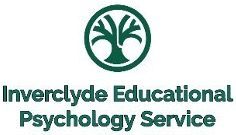The Educational Psychology Service applies psychology and research to inform the best use of universal and targeted resources. The service adopts a strengths-based approach working towards improving outcomes for children and young people with a focus on building capacity in educational establishments as well as providing support and development with our partners in Health, Social Care and the third sector.
Termly Practice Level Agreements (PLA)
IEPS values the relationships that we have with our education establishments. As such, we operate a model of service delivery in which each establishment has allocated to them a nominated member of our team, as the link between the establishment and the educational psychology service. It is expected that three planning meetings will be undertaken each session, between the allocated educational psychologist and a link member of staff from each establishment (usually a member of the senior management team) to review work from the previous term and plan ahead for the next one. This process of planning and review forms a Practice Level Agreement (PLA).
The establishment planning process involves links helping to coordinate our work at the individual casework and systemic levels. At the heart of this lies the notion that we always apply a psychological evidence base to our work. In this context, we firmly believe in the application of the change methodologies of Implementation Science and Collaborative Action Enquiry. It would also be expected that systemic work would assist establishments meet some of the priorities laid out in their annual improvement plan.
Research and development
Research and development are key activities within Inverclyde Educational Psychology Service. Psychological research impacts upon every aspect of our service delivery and what we do. Within the current climate of sustainability and accountability, evaluation of impact and outcomes is key. The service endorses the use of collaborative action enquiry in its work, representing areas which can add real value to the activities and practice of the Education Services and the wider community. This work also contributes to the development of applied Educational Psychology more generally.
Within an educational establishment context, decisions regarding how the Educational Psychology Service might be able to contribute to areas of identified need are based upon a number of factors:-
- National and local priorities and developments which are most likely to be articulated in the Children’s Services Plan, and/or the Education Service’s Improvement Plan.
- The educational establishment’s improvement plan priorities.
The role and contribution of the Educational Psychology Service to research and development activities would be negotiated through a collaborative process with reference to the evidence base. The research methodologies that will be used will be outlined, as well as how impact would be evaluated. The work would be agreed and written into the establishment Practice Level Agreement, which would be reviewed and updated termly.
Casework
IEPS also negotiates individual casework with our establishment links. At all times we adopt an ecological approach to our work, which is in contrast to the medical model. This key difference is explored further in the Review of the Provision of Educational Psychology Services in Scotland (2001). This document indicates that:
1.24 In their practice, Educational Psychologists have moved away from a medical model, which perceived the problem to be inherent in the child, thereby requiring assessment, diagnosis and treatment, towards a model which perceives difficulties to arise from the interaction of children with their environment, curriculum, teachers, the environment, teaching and other alternative variables in such a way as to remove any obstacles to successful learning and progress. It is closely related to the social model of disability, and it does not detract from the fact that some difficulties, such as autistic spectrum disorders, have a biological cause.
This model requires the psychologist to work with and through others in a consultative, facilitative capacity, and gives much larger numbers of children access to psychological skills and knowledge. However, the role is sometimes misunderstood by those who continue to have expectations based on a medical model.
In individual casework our role is reviewed on a termly basis with the establishment link. In those situations where there is a clear ongoing role for the educational psychologist, this should be articulated in the new PLA. For those situations where the educational psychologist has completed their work, a summative evaluation would be completed in collaboration with stakeholders.


